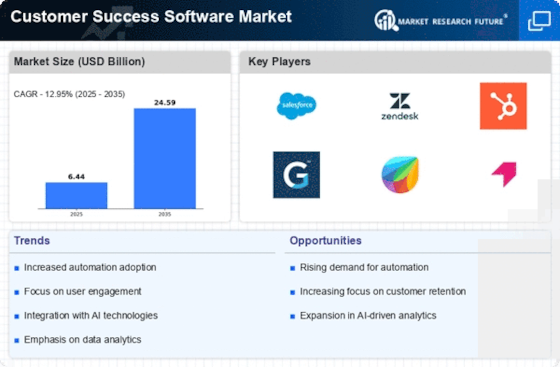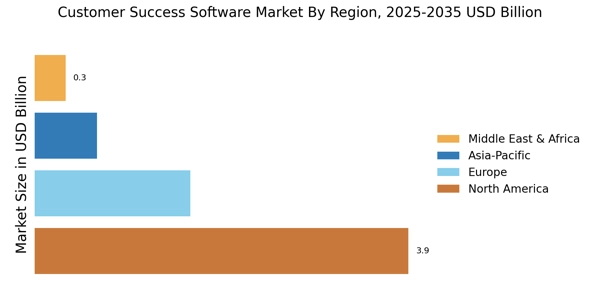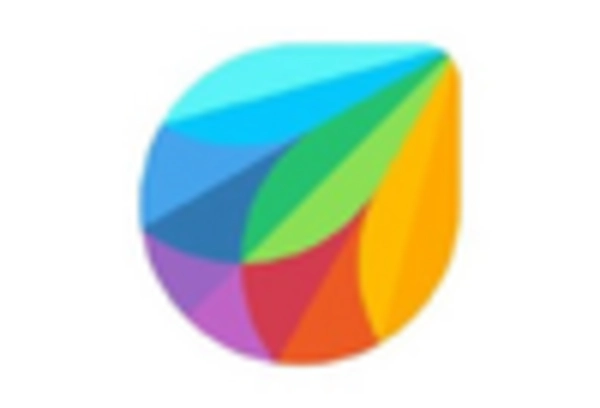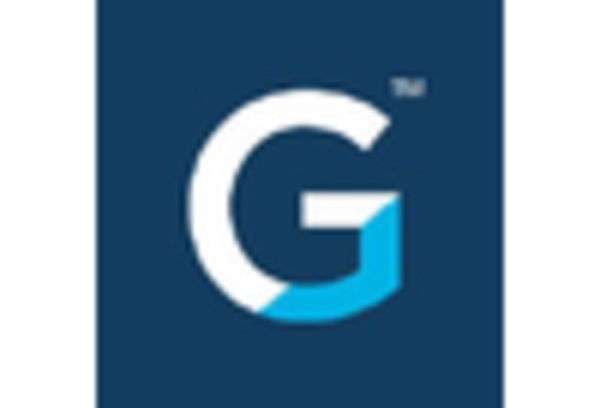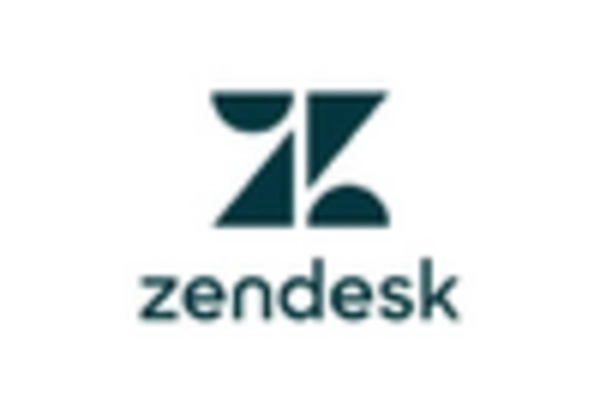Emphasis on Data-Driven Decision Making
The Customer Success Software Market is increasingly influenced by the emphasis on data-driven decision making. Organizations are harnessing analytics and metrics to inform their customer success strategies. By utilizing customer success software, businesses can track key performance indicators and gain insights into customer engagement patterns. This data-centric approach enables companies to make informed decisions that enhance customer satisfaction and retention. Recent findings indicate that organizations leveraging data analytics in their customer success efforts achieve a 25% improvement in customer retention rates. Consequently, the demand for robust customer success software that integrates data analytics capabilities is expected to rise.
Rising Demand for Customer-Centric Solutions
The Customer Success Software Market experiences a notable surge in demand for customer-centric solutions. Organizations increasingly recognize the importance of enhancing customer experiences to drive loyalty and retention. According to recent data, companies that prioritize customer success report a 20% increase in customer satisfaction scores. This trend indicates a shift towards proactive engagement strategies, where businesses leverage customer success software to monitor customer health and identify potential churn risks. As a result, the industry is witnessing a proliferation of tools designed to facilitate personalized interactions and tailored support, ultimately fostering long-term relationships between businesses and their clients.
Expansion of Subscription-Based Business Models
The expansion of subscription-based business models is significantly influencing the Customer Success Software Market. As more companies adopt subscription models, the need for effective customer success strategies becomes paramount. Subscription-based businesses rely heavily on customer retention and satisfaction to ensure recurring revenue. Recent market analysis reveals that organizations utilizing customer success software in subscription models achieve a 40% higher customer lifetime value. This trend highlights the necessity for software solutions that provide insights into customer behavior and facilitate proactive engagement. Consequently, the demand for customer success software tailored to subscription-based businesses is expected to grow.
Growing Importance of Customer Feedback Mechanisms
The growing importance of customer feedback mechanisms is reshaping the Customer Success Software Market. Businesses are increasingly recognizing that customer feedback is vital for refining products and services. By implementing customer success software that facilitates feedback collection and analysis, organizations can gain valuable insights into customer preferences and pain points. This trend is supported by data indicating that companies actively seeking customer feedback experience a 15% increase in customer loyalty. As a result, the demand for software solutions that streamline feedback processes and enable real-time adjustments to customer strategies is likely to expand.
Increased Investment in Customer Success Initiatives
Investment in customer success initiatives is on the rise, significantly impacting the Customer Success Software Market. Organizations are allocating substantial budgets to enhance their customer success teams and technologies. Recent statistics suggest that companies investing in customer success software experience a 30% increase in upsell opportunities. This trend underscores the recognition of customer success as a critical driver of revenue growth. As businesses strive to optimize their customer journeys, the demand for sophisticated software solutions that provide insights into customer behavior and preferences continues to grow, thereby propelling the industry forward.


